When you first see a crypto project that promises instant fiat‑to‑crypto swaps, a prepaid card, and a network of African payment partners, it can sound like the next big thing. Flash Technologies (FLASH) is marketed exactly that way - a money‑transfer ecosystem built on the Binance Smart Chain (BSC) that claims to let you turn cash into crypto and back with just a few clicks.
But the reality behind the glossy marketing is far less exciting. The token never made it onto a reputable exchange, its supply numbers don’t add up, and the development team went silent years ago. In this deep‑dive we’ll break down what the project claims, what the data actually shows, and why most experts label it a dead‑coin or outright scam.
Key Takeaways
- Flash Technologies (FLASH) was announced in 2022 as a BSC‑based payment token, but it has no active market and a reported supply of 0.
- The promised fiat‑to‑crypto conversion service, prepaid card, and African payment integrations have never been demonstrated.
- Major trackers like CoinMarketCap and CoinGecko list the token on a "preview" page with missing data, and Holder.io confirms it isn’t traded anywhere.
- Development activity stopped in early 2022; the GitHub repos contain only documentation, no functional code.
- Investors should treat FLASH as a high‑risk, likely defunct project and avoid allocating capital to it.
Project Overview
The official website (flash‑technologies.org) describes Flash Transfer as a platform that can automatically convert any cryptocurrency into a stablecoin - primarily BUSD - before sending cash to partners like Orange Money, M‑Pay, or M‑Pesa. The token itself is an ERC‑20‑style asset on BSC with the contract address 0x311E…c81c5D. According to the original whitepaper, the maximum supply is 1 billion FLASH, but the live metrics on CoinMarketCap show 0 total and 0 circulating supply.
Flash’s roadmap promised a prepaid card (called "flash recharge") by Q3 2022 and integration with ten major mobile‑money providers by Q1 2023. Neither milestone materialized - the website’s last snapshot on the Wayback Machine is from July 2022 and contains only placeholder pages.
Technical Details
Flash operates on the Binance Smart Chain, which offers lower transaction fees than Ethereum but shares many of the same security concerns. The token follows the standard BEP‑20 spec, meaning it inherits the basic ERC‑20 functions (transfer, approve, etc.). However, the project’s GitHub (github.com/Flash-Technologies) hosts three repos with less than 200 lines of code total; there is no deployed smart‑contract audit, no wallet SDK, and no open‑source payment gateway.
In theory, the flow would be:
- User sends any crypto (BTC, ETH, etc.) to the Flash app.
- The system swaps the crypto for BUSD using a decentralized exchange.
- BUSD is then handed off to a partner payment service, which converts it to local fiat and delivers cash.
But because the app never launched, the described architecture lives only on paper. The whitepaper mentions automatic conversion to other stablecoins (USDT, USDC, DAI) and a 2 % transaction fee plus partner fees, yet no real‑world fee schedule has ever been published.
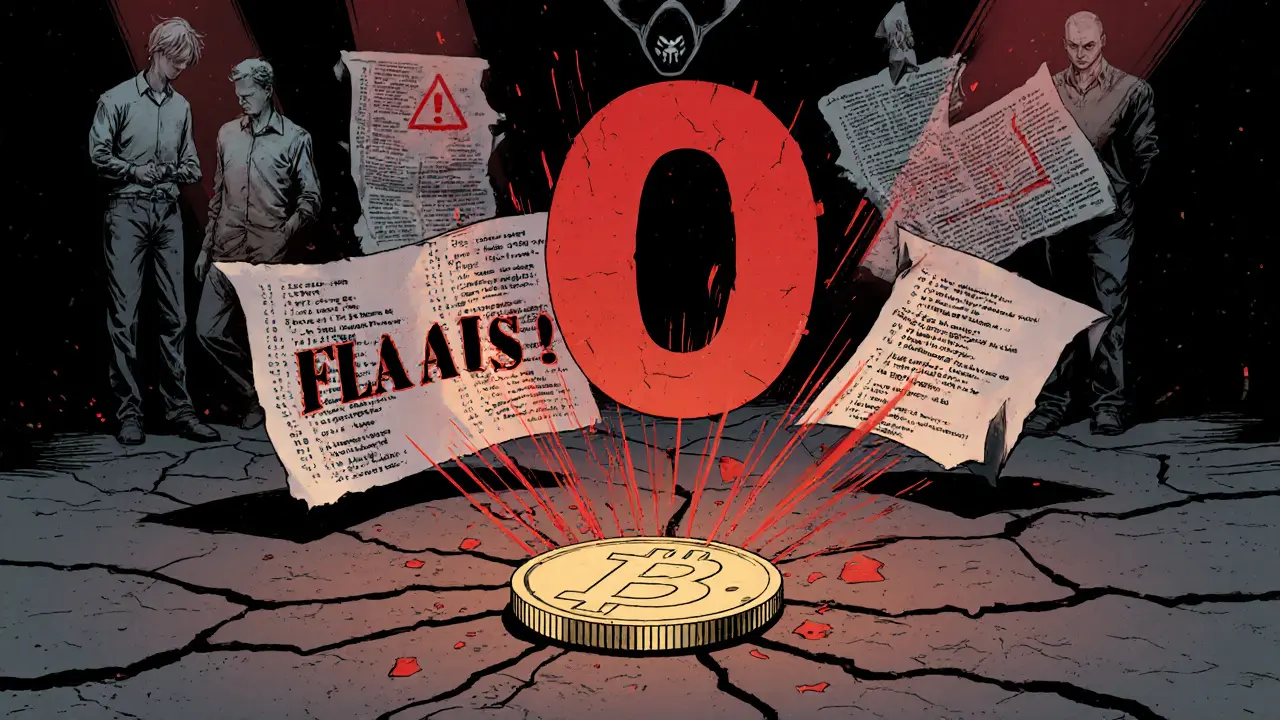
Market Presence & Trading Data
As of October 2023, neither CoinGecko nor CoinMarketCap list FLASH in their top 5,000 rankings. The token appears only on a "preview" page that requires additional verification - a red flag according to CoinMarketCap’s Listings Review Criteria (Section B‑(3)). Holder.io’s June 2023 report explicitly states: "Today Flash (FLASH) not traded anywhere," and the same source quoted an impossible price of 0.0026 USD per token despite zero volume.
Because there are no exchange listings, you cannot buy FLASH through reputable platforms like Binance, Kraken, or KuCoin. The only way to acquire it would be via a peer‑to‑peer transfer from someone who already holds the token, which is practically impossible given the zero circulating supply.
Red Flags & Risks
Several warning signs emerge when you line up the promises against the data:
- Supply inconsistency: A max supply of 1 billion with 0 total supply violates basic token economics.
- No market data: Absence from major trackers and exchanges means you cannot determine price, liquidity, or market depth.
- Inactive development: Last GitHub commit in March 2022; no new code, no audit, no community contributions.
- Dead social channels: Twitter account @Flash_Techno_Of stopped posting in February 2022; Telegram groups contain only old promotional messages.
- Unverified partnerships: Claims of integration with Orange Money, M‑Pesa, and others lack any third‑party confirmation.
- Regulatory gap: Offering fiat‑to‑crypto services globally would require money‑transmitter licenses in dozens of jurisdictions; no such licenses are listed.
All these factors combine to give FLASH a near‑zero probability of revival, according to analysts at Messari and CoinDesk who categorize it as a "defunct project."
How FLASH Stacks Up Against Similar Payment Tokens
To put the project's claims in perspective, let’s compare FLASH with three established crypto‑payment solutions that actually ship products: Ripple (XRP), Stellar (XLM), and Circle’s USDC ecosystem.
| Feature | Flash Technologies (FLASH) | Ripple (XRP) | Stellar (XLM) | USDC (Circle) |
|---|---|---|---|---|
| Blockchain | Binance Smart Chain (BSC) | XRP Ledger | Stellar Ledger | Ethereum + multiple chains |
| Active Exchanges | None (as of 2023) | All major exchanges | All major exchanges | All major exchanges |
| Stablecoin Integration | Claims BUSD conversion | Own XRP token, no native stablecoin | USDC & native assets | USDC is the token itself |
| Fiat‑to‑Crypto Service | Never launched | RippleNet partners (banks) | Stellar Horizon APIs | Circle’s on‑ramps via partners |
| Regulatory Status | Unclear, no licences | SEC‑related scrutiny, but operational | Compliance‑focused, AML/KYC tools | Fully regulated stablecoin |
From the table it’s clear that FLASH lacks the core elements that make the other tokens usable: exchange listings, real‑world partnerships, and regulatory compliance.
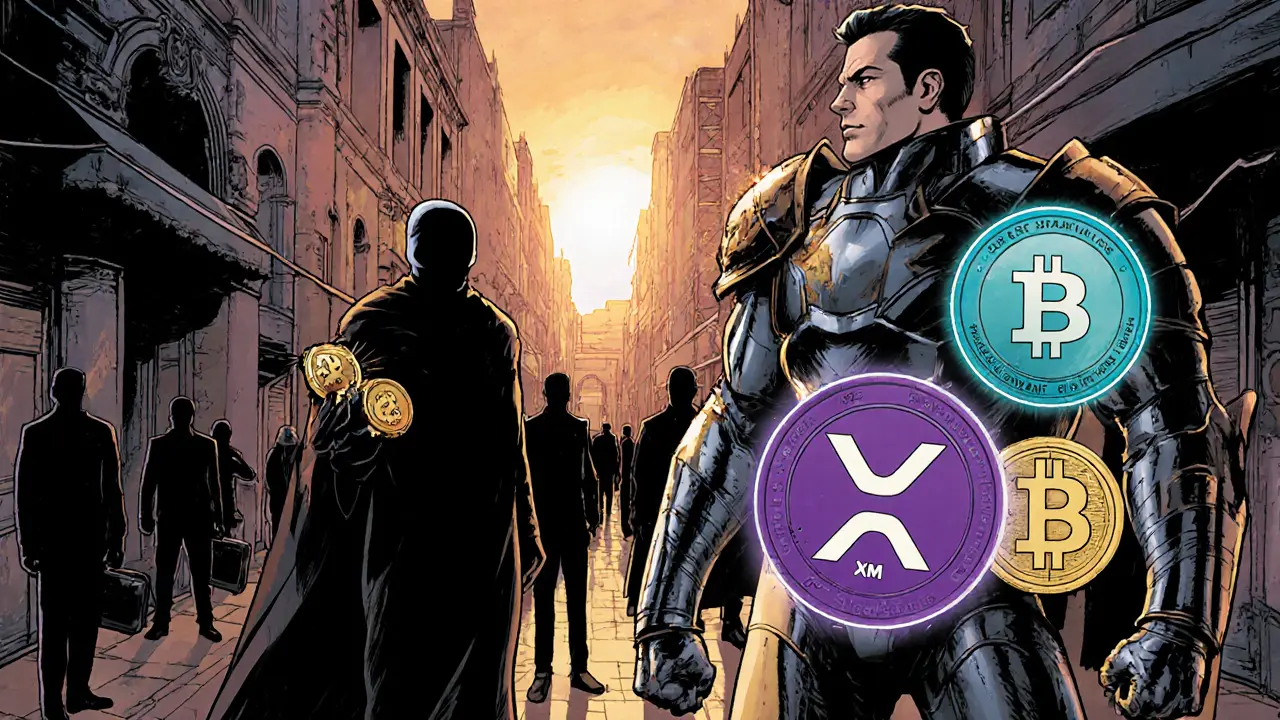
Future Outlook
Given the lack of development, zero market activity, and missing product launches, the outlook for FLASH is bleak. Even if a new team were to acquire the contract, they would face an uphill battle rebuilding trust, securing licences, and delivering a product that never existed. Most analysts recommend treating the token as a lost cause and focusing on proven alternatives for fiat‑crypto transfers.
Practical Tips for Anyone Who Still Encounters FLASH
- Don’t send money to unknown wallets. Since there’s no exchange, any address that claims to accept FLASH is likely a scam.
- Verify contracts. Use BscScan to confirm the contract address matches the one published on the official site (if the site is even trustworthy).
- Check community activity. Active Telegram, Discord, or Reddit groups are a good sign. FLASH’s channels have been silent for years.
- Look for third‑party audits. Reputable tokens publish audit reports; FLASH has none.
- Consider alternatives. For African mobile‑money payments, look at Stellar’s partnerships or Ripple’s Net.
Frequently Asked Questions
Is Flash Technologies (FLASH) listed on any exchange?
No. As of the latest data in 2023, FLASH does not trade on Binance, Coinbase, KuCoin, or any other major exchange. Holder.io confirmed it isn’t traded anywhere.
What is the current circulating supply of FLASH?
Both CoinMarketCap and CoinGecko list the total and circulating supply as 0, despite a stated max supply of 1 billion tokens. This discrepancy is a major red flag.
Can I use FLASH to convert crypto to cash in Africa?
In practice, no. The promised integrations with services like M‑Pesa, Orange Money, and Wave have never been demonstrated, and there is no working app or API to perform such conversions.
Is Flash Technologies a scam?
While there is no court ruling, the combination of missing product, zero market data, inactive development, and unverified partnerships strongly suggests that FLASH is at best a failed project and at worst a scam.
Should I invest in FLASH?
The consensus among analysts is to avoid investing. With no liquidity, no clear roadmap, and no real product, the risk far outweighs any speculative upside.
In short, Flash Technologies (FLASH) reads like a marketing brochure that never turned into a working service. If you’re looking for a crypto payment solution, your money is safer with established tokens that have live markets, audited code, and active communities.

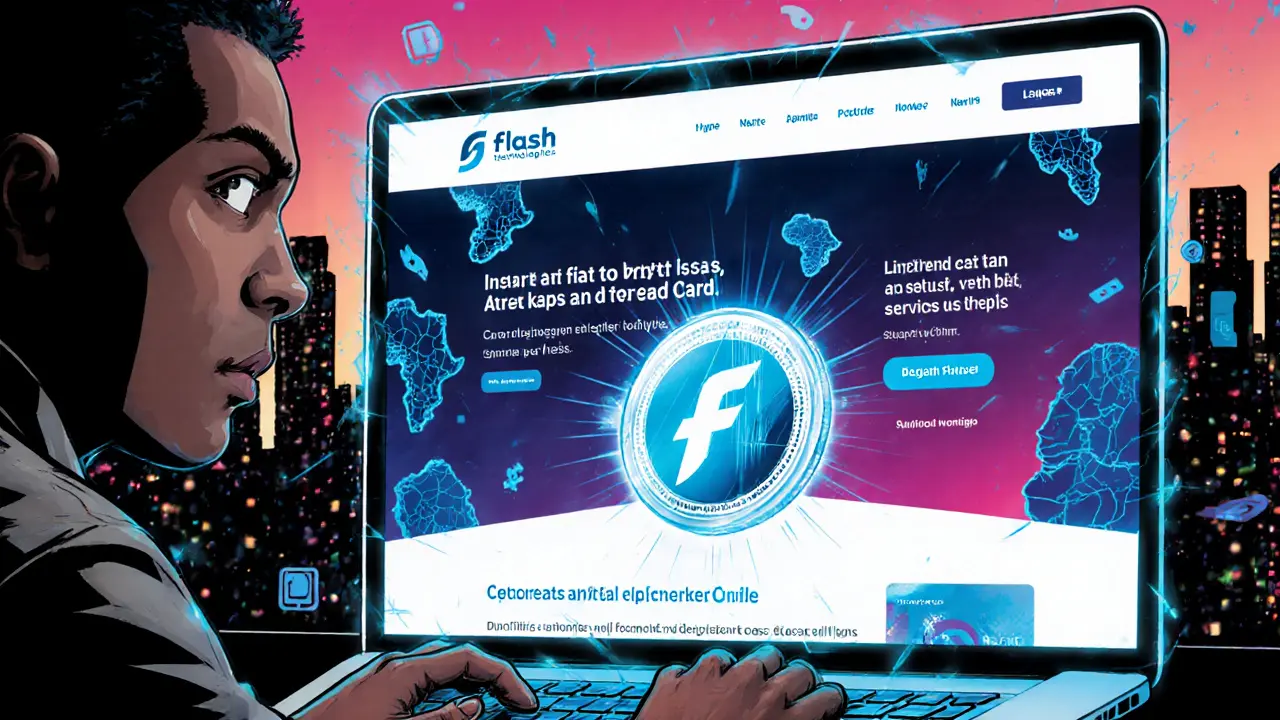
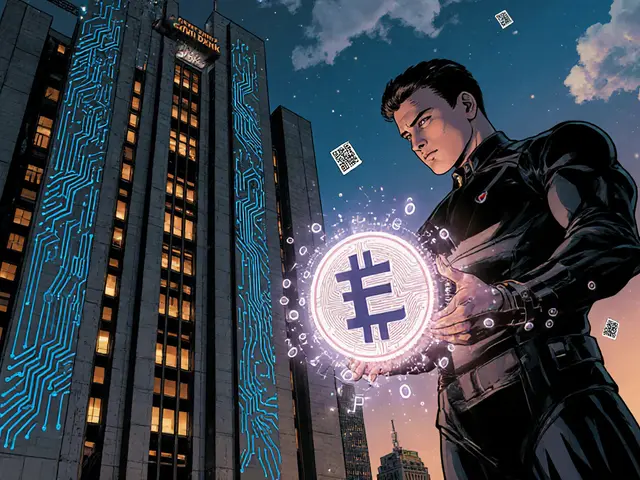
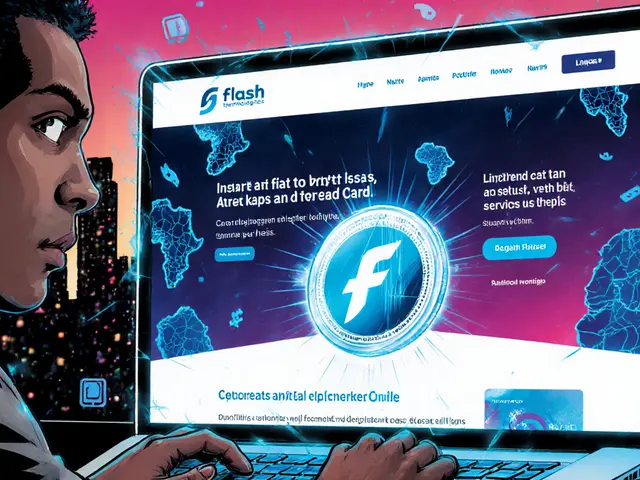
Evan Holmes
October 22 2025Looks like another dead crypto project.
Paul Barnes
October 22 2025While the hype crowd chases glitter, the hidden ledger shows a pattern of deliberate obfuscation. The silence from the devs feels like a carefully staged illusion.
John Lee
October 22 2025The Flash Technologies whitepaper reads like a glossy brochure promising instant fiat conversion.
The on‑chain data, however, shows zero total supply and no liquidity pools.
A token that cannot be bought or sold effectively does not belong in a real market.
The roadmap promised a prepaid card by Q3 2022, but the product never materialized.
Their claimed partnerships with African mobile‑money providers lack any third‑party verification.
Without a working API or SDK, the described conversion flow remains purely theoretical.
The GitHub repos contain under two hundred lines of code, none of which implements the advertised features.
Moreover, the last commit dates back to March 2022, indicating an abandoned development effort.
Major tracking sites list FLASH only on a “preview” page, a red flag for investors.
The reported max supply of one billion contrasted with a listed circulating supply of zero violates basic token economics.
No reputable exchange has listed the coin, eliminating any price discovery mechanism.
Users who attempted to acquire it would have to rely on peer‑to‑peer transfers, a risky and opaque method.
Regulatory compliance is absent; a fiat‑to‑crypto service across borders would require multiple money‑transmitter licenses.
Compared to established payment tokens like XRP, XLM, or USDC, FLASH offers none of the functional infrastructure.
In short, the project appears to be a classic case of vaporware masquerading as an innovation.
Jireh Edemeka
October 22 2025Your optimism is charming, but the facts remain stubbornly unaltered. Even if the team were still alive, the numbers just don’t add up.
del allen
October 22 2025I feel you, it's rough to see another token vanish like that 😔.
Jon Miller
October 23 2025Wow, this is the crypto drama of the year!
Nikhil Chakravarthi Darapu
October 23 2025Look, it’s not about nations; it’s about scams that prey on anyone regardless of borders.
Tiffany Amspacher
October 23 2025Is the universe conspiring to hide the truth about these shadow tokens, or are we just chasing ghosts?
Ryan Steck
October 23 2025They’re hiding it on purpose, man. The whole thing is staged.
James Williams, III
October 23 2025From a technical standpoint, the token follows the BEP‑20 spec, but there’s no liquidity pool, no audit, and no SDK. In the crypto‑payment world, those three pillars are non‑negotiable if you want real utility.
Patrick Day
October 23 2025Sure, the spec is there, but who’s actually using it? Looks like a ghost contract to me.
Jenna Em
October 23 2025If you stare long enough at the numbers, you’ll see the emptiness staring back.
Erik Shear
October 24 2025Exactly. No volume no users no future.
BRIAN NDUNG'U
October 24 2025Investors, take a moment to conduct thorough due‑diligence: verify contracts on BscScan, inspect the code repository, and cross‑check any partnership claims with official sources.
Donnie Bolena
October 24 2025Stay vigilant, stay curious, and never let shiny promises eclipse solid fundamentals!!!
Elizabeth Chatwood
October 24 2025totally agree great reminder
Tom Grimes
October 24 2025I’ve seen too many people fall for the glitter of a new token, only to watch their hopes melt away like ice in the sun. It’s a pattern that repeats across every hype cycle, and Flash Technologies is just another chapter in that story. The promises of instant fiat conversion and a prepaid card sound amazing on paper, but the reality is a silent GitHub and a missing product. When a project disappears from Twitter, Telegram, and GitHub, it sends a clear warning sign that the ship has already sailed. The lack of any exchange listing makes it impossible to gauge true market interest, turning any potential investment into a gamble with invisible odds. Even the most enthusiastic community members can’t conjure liquidity out of thin air; it needs real users, real transactions, and real partnerships. The claimed African mobile‑money integrations are never verified by the services themselves, which suggests they were more marketing fluff than actual agreements. A token with a declared max supply of one billion but a recorded total supply of zero is an arithmetic absurdity that should raise eyebrows instantly. In short, the whole project feels like a mirage designed to attract curious eyes and then vanish without a trace.
Rebecca Kurz
October 24 2025Exactly, another classic vanishing act.
Stephen Rees
October 24 2025One wonders whether the void we see is a flaw in the system or a mirror reflecting our own greed.
Katheline Coleman
October 24 2025Given the absence of verifiable documentation and the cessation of development activity, it is prudent to redirect one’s attention toward projects that demonstrate transparent governance, audited smart contracts, and active community engagement.
Amy Kember
October 25 2025Redirecting focus is essential; settling for half‑baked ventures only drags the ecosystem down.
Scott McCalman
October 25 2025Honestly, anyone who missed the red flags on FLASH missed the biggest meme of the year 😂.
PRIYA KUMARI
October 25 2025It’s not a meme; it’s a textbook example of how unchecked hype can bleed investors dry. Stop glorifying the chaos.
Jessica Pence
October 25 2025For anyone still curious, checking the contract address on BscScan and looking for an audit report are the first steps before even thinking about a purchase.
johnny garcia
October 25 2025Indeed, the absence of an audit is not merely a missing document but a void where trust should reside. 🧐